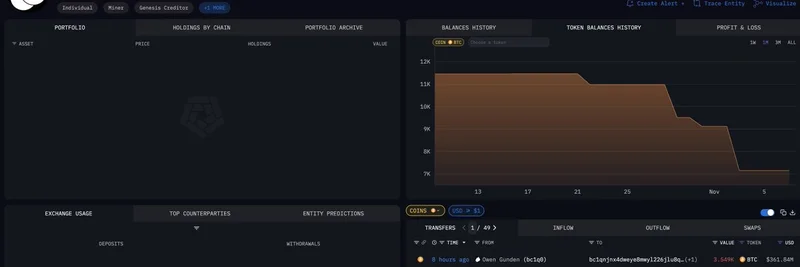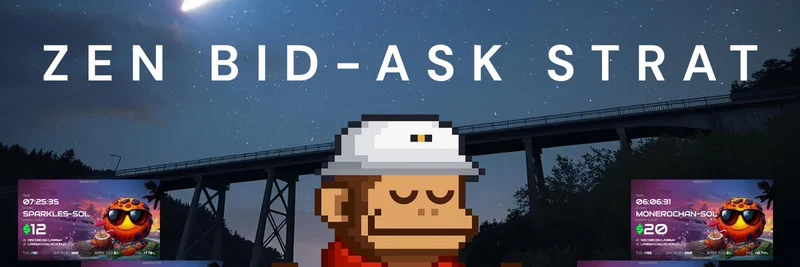Hey there, crypto enthusiasts! If you’ve been keeping an eye on the latest buzz in the blockchain world, you’ve probably stumbled across a thought-provoking post by Jake Chervinsky, a well-known figure in the crypto legal space. On August 8, 2025, he dropped a bombshell on X (@jchervinsky/status/1953793589076513078), sparking a lively discussion about the upcoming market structure bill and its potential pitfalls. As someone who’s passionate about meme tokens and blockchain tech, let’s break it down together and see what this means for the industry—especially with the current date being 02:38 AM JST on August 9, 2025!
What’s the Big Deal with the Market Structure Bill?
Chervinsky points out that a major driver behind this legislation is the fear of a “Gensler 2.0”—a reference to Gary Gensler, the current SEC Chair known for his tough stance on crypto regulation. With Gensler’s term running until June 2026 and a potential leadership shake-up under a new administration (as hinted in recent reports from steptoe.com), the industry is scrambling to lock in protections now. The idea is simple: pass a bill today to shield the crypto world from stricter rules tomorrow.
But here’s the catch—Chervinsky argues it’s not enough to just focus on the SEC. The Department of Justice (DOJ) also plays a huge role in crypto enforcement, and without addressing it, the bill might fall short. He specifically mentions the need for “full developer protections” and a fix to “Section 1960,” a part of U.S. law that deals with money transmission regulations. This is where things get juicy for blockchain practitioners like us!
Why DOJ and Section 1960 Matter
Let’s unpack this a bit. The DOJ has been cracking down on crypto developers, especially those working on tools like mixers or non-custodial software. For example, cases like the Tornado Cash lawsuit (detailed on blockonomi.com) show how developers can face legal heat for creating open-source tools that regulators claim aid illegal activities. Section 1960, part of the U.S. Code, defines operating an unlicensed money transmitting business—a label that’s been controversially applied to crypto projects.
Chervinsky warns that without clarifying this law, a future “Garland 2.0” (referring to Attorney General Merrick Garland or a similar successor) could spell trouble. The crypto community, including voices like those from the DeFi Education Fund (decrypt.co), has been pushing for Congress to step in and provide clarity. This is a big deal because it affects everyone from meme token creators to DeFi developers who rely on open-source innovation.
The X Conversation: What Others Are Saying
Chervinsky’s post didn’t fly under the radar—it sparked a thread of reactions. Some users, like @cryptoMADfish, echoed the need for robust developer protections, while others, like @MikeMeisterling, raised a tough question: how do we balance open-source freedom with preventing sanctions evasion? It’s a valid point—mixers and similar tools can be a double-edged sword, helping privacy but also complicating compliance.
The thread also saw support from folks like @E_Z_Trades, who agree that DOJ safeguards are non-negotiable. Meanwhile, a skeptic (@WilliamWwolfe28) hinted at political trade-offs, suggesting the industry might be compromising too much. This mix of opinions shows how heated and complex this debate is!
What This Means for Meme Tokens and Blockchain Pros
As someone at Meme Insider (meme-insider.com), I can’t help but tie this back to our niche. Meme tokens, often built on fun and community vibes, rely on the same blockchain infrastructure that’s under scrutiny. If developer protections aren’t solidified, the next big Dogecoin or Shiba Inu could face legal hurdles before it even takes off. For blockchain practitioners, this is a call to stay informed and engaged—your next project might depend on how these laws shake out.
Looking Ahead
With the House already passing bills like the Digital Asset Market Clarity Act of 2025 (cnbc.com), the Senate’s next move will be critical. Chervinsky’s warning about DOJ oversight is a wake-up call: legislation needs to be comprehensive, not just a quick fix. As we watch this unfold, keep an eye on how it might shape the meme token landscape and the broader crypto ecosystem.
What do you think? Should the focus be on SEC or DOJ? Drop your thoughts in the comments, and let’s keep the conversation going! For more blockchain insights, check out our knowledge base at Meme Insider.


